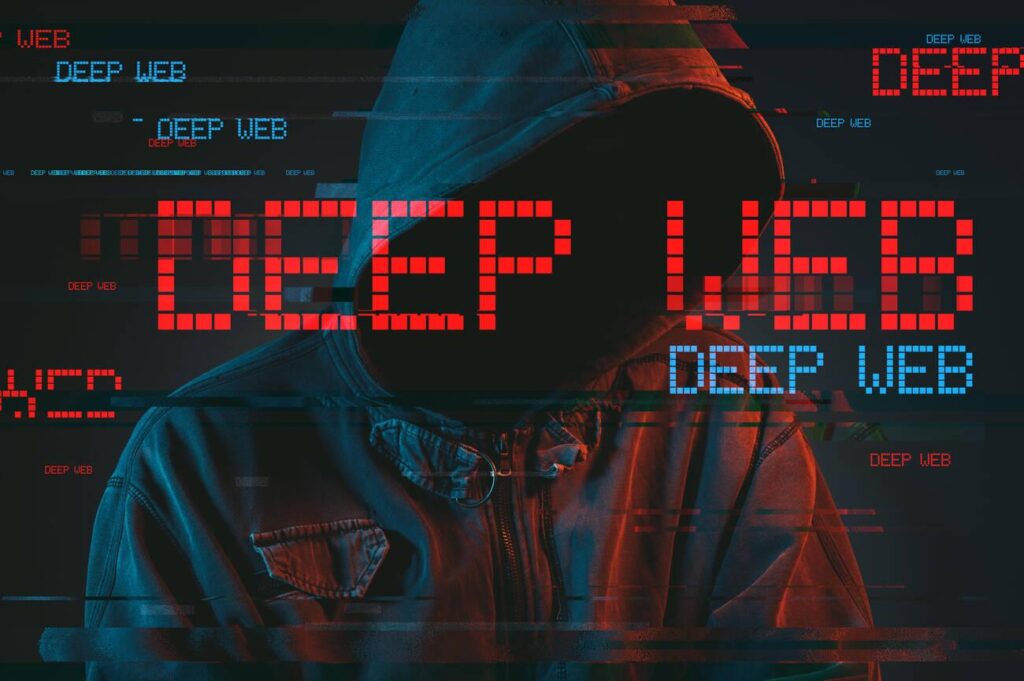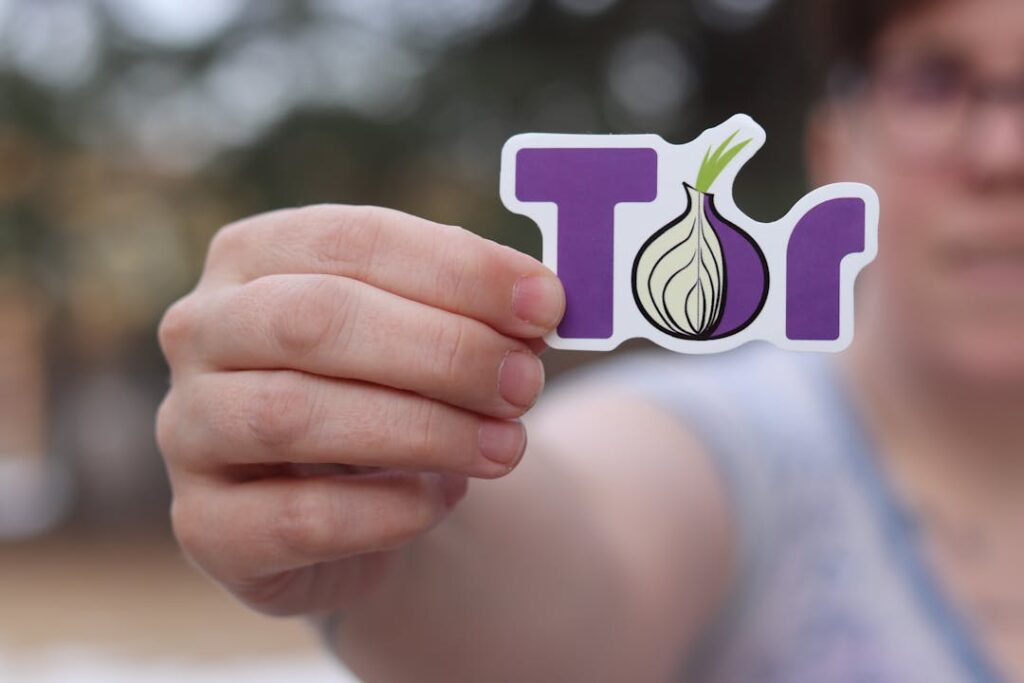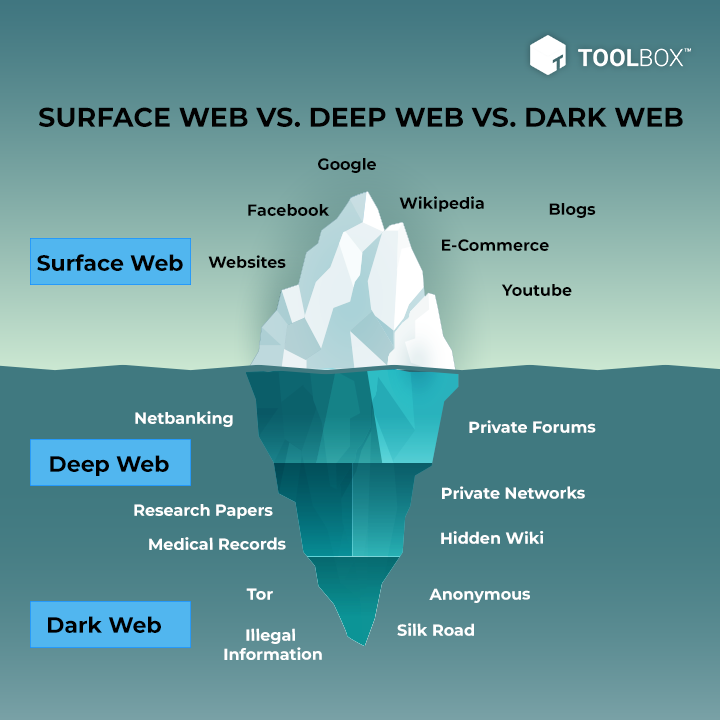Ever stopped to wonder just how vast the internet really is? You browse your favorite social media sites, watch countless cat videos, and maybe even do a little online shopping. But what you see is just the tip of the iceberg – a tiny fraction of the digital world. Lurking beneath the surface lies a hidden realm, shrouded in mystery and intrigue – the Deep Web and its even more enigmatic counterpart, the Dark Web.
The Internet’s Hidden Depths: More Than Meets the Eye
Let’s face it, most of us don’t spend our days pondering the intricacies of how the internet works. We type in a website address, hit enter, and voila – magic happens! But understanding the underlying structure of this digital universe is key to grasping the concept of the hidden web.
Think of the internet as a vast network of interconnected computers, kind of like a giant spiderweb spanning the globe. When you access a website, your computer sends a request through this network, hopping from one point to another until it reaches the destination server hosting that website.
Now, the internet we interact with daily – the one we use to search for funny memes and order pizza – is called the Surface Web. It’s indexed by search engines like Google, making it easily accessible to anyone with an internet connection.
But what about the information that’s not indexed? What about the data hidden behind login screens, paywalls, and secure databases? This, my friend, is the realm of the Deep Web.
The Deep Web: A Treasure Trove of Information (and Cat Pictures?)

Contrary to popular belief, the Deep Web isn’t some sinister underbelly of the internet. It’s simply a massive repository of information that’s not publicly accessible. Think about it:
- Your online banking portal? Deep Web.
- Your private social media messages? Deep Web.
- Confidential company documents stored on a secure server? You guessed it – Deep Web!
It even includes things like cloud storage services, online learning platforms, and webmail inboxes. In essence, the Deep Web encompasses any online content that requires specific credentials or authorization to access.
And no, before you ask, you won’t find a secret marketplace selling unicorn tears and dragon scales on the Deep Web. That’s a whole different beast – one we’ll delve into shortly.
The Onion Analogy: Peeling Back the Layers of the Dark Web
Now, if the Deep Web is like a gated community, the Dark Web is like a secret society meeting in a hidden basement – only accessible through specific means and shrouded in anonymity. This is where things get really interesting (and a little bit creepy).

To access the Dark Web, you need specialized software, the most common being the Tor browser. Tor, short for “The Onion Router,” is designed to provide anonymity by bouncing your internet traffic through a series of volunteer-operated servers around the world.
Imagine you’re sending a letter, but instead of writing your return address, you put it in an envelope and address it to a friend. Your friend then puts it in another envelope, addresses it to someone else, and so on. By the time the letter reaches its final destination, it’s been wrapped in multiple layers – just like an onion! This makes it incredibly difficult to trace the origin of the message.
This layered encryption is what gives the Dark Web its anonymity. It’s a place where users can communicate and share information without revealing their identities, making it a haven for whistleblowers, journalists operating in restrictive regimes, and, unfortunately, individuals engaged in illegal activities.
The Dark Side of Anonymity: A Marketplace for Illicit Goods and Services
While the technology behind the Dark Web is undeniably fascinating, its association with criminal activity is undeniable. The anonymity it provides has attracted a darker side of the internet, one where users buy and sell illegal goods and services with perceived impunity.
Think of it like a digital black market, where you can find everything from stolen credit card information and fake IDs to drugs, weapons, and even… well, let’s just say some things are best left unsaid.
One of the most infamous examples of this dark underbelly was Silk Road, a digital marketplace operating on the Dark Web between 2011 and 2013. It gained notoriety for facilitating the sale of illegal drugs and other illicit goods using Bitcoin as its primary currency.
While Silk Road was eventually shut down by law enforcement agencies, it highlighted the challenges of policing the Dark Web. The decentralized and anonymous nature of this hidden network makes it incredibly difficult to track down criminals and bring them to justice.
The Ethical Tightrope: To Explore or Not to Explore?

The Dark Web presents a moral dilemma. On the one hand, it offers a platform for free speech and anonymity, crucial for those living under oppressive regimes. On the other, it facilitates illegal activities, endangering individuals and undermining societal structures.
So, should you venture into this digital abyss?
The simple answer is: proceed with extreme caution.
While merely accessing the Dark Web isn’t illegal in most countries, engaging in illegal activities certainly is. Remember, the anonymity provided by the Dark Web isn’t foolproof. Law enforcement agencies are constantly developing new techniques to track down criminals operating in this space.
A Glimpse into the Abyss: What Lies Beneath the Surface?
If you’re still curious about what you might encounter on the Dark Web (and let’s be honest, who isn’t at least a little bit curious?), here’s a glimpse into some of the more common (and disturbing) things you might find:
- Hidden Forums and Marketplaces: These are digital meeting grounds for individuals with shared interests, ranging from harmless discussions about privacy and cryptography to forums dedicated to hacking, cybercrime, and even more nefarious activities.
- Whistleblower Platforms: Organizations like WikiLeaks have used the Dark Web to allow individuals to anonymously leak sensitive information, exposing corruption and wrongdoings.
- Hacking Services: Need to break into someone’s social media account? Want to hire a hacker to take down a website? The Dark Web has a service for that – for a price, of course.
- Stolen Data Marketplaces: Stolen credit card information, social security numbers, and other personal data are hot commodities on the Dark Web. Hackers buy and sell this information, often using it for identity theft and financial fraud.
This is just a small sampling of what you might encounter on the Dark Web. It’s a constantly evolving landscape, with new websites and services popping up (and disappearing) all the time.
A Word of Warning: Tread Carefully in the Digital Shadows
Before you even think about venturing into the depths of the Dark Web, remember that it’s a dangerous place, even for experienced internet users. The anonymity attracts scammers, hackers, and other malicious actors looking to exploit unsuspecting individuals.
Here are a few things to keep in mind:
- Stay Anonymous: Use a VPN in conjunction with the Tor browser to mask your IP address and encrypt your internet traffic.
- Be Wary of Everything: Don’t trust anything you see or read on the Dark Web. Many websites and services are scams designed to steal your information or money.
- Never Reveal Personal Information: This should go without saying, but never reveal your real name, address, or any other identifying information on the Dark Web.
- Don’t Download Anything: Downloading files from the Dark Web is incredibly risky. They could be infected with malware or contain illegal content.
- Be Aware of the Legal Risks: Engaging in any illegal activity on the Dark Web can have serious legal consequences. Law enforcement agencies are constantly monitoring this space, and you don’t want to end up on the wrong side of the law.
The Dark Web: A Reflection of Our Digital Duality
The Dark Web is a complex and often unsettling reflection of our digital world. It represents both the liberating potential and the inherent dangers of anonymity in the digital age. While it offers a platform for free speech and whistleblowing, it also provides a haven for criminal activity and exploitation.
Ultimately, the decision of whether or not to explore this hidden realm is a personal one. But before you click on that mysterious link, remember to proceed with caution, awareness, and a healthy dose of skepticism. The digital world, like the physical one, is full of wonders and dangers – it’s up to you to navigate them responsibly.
